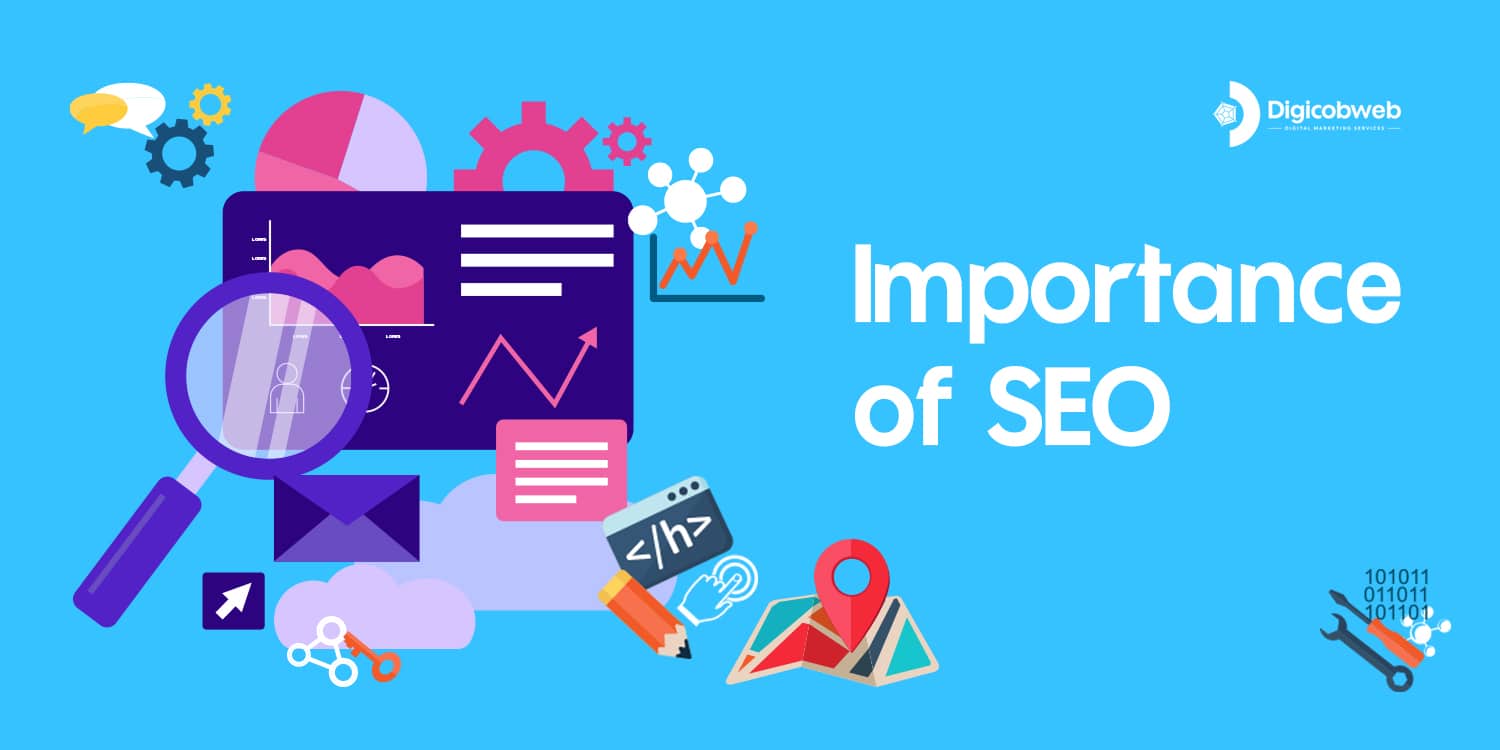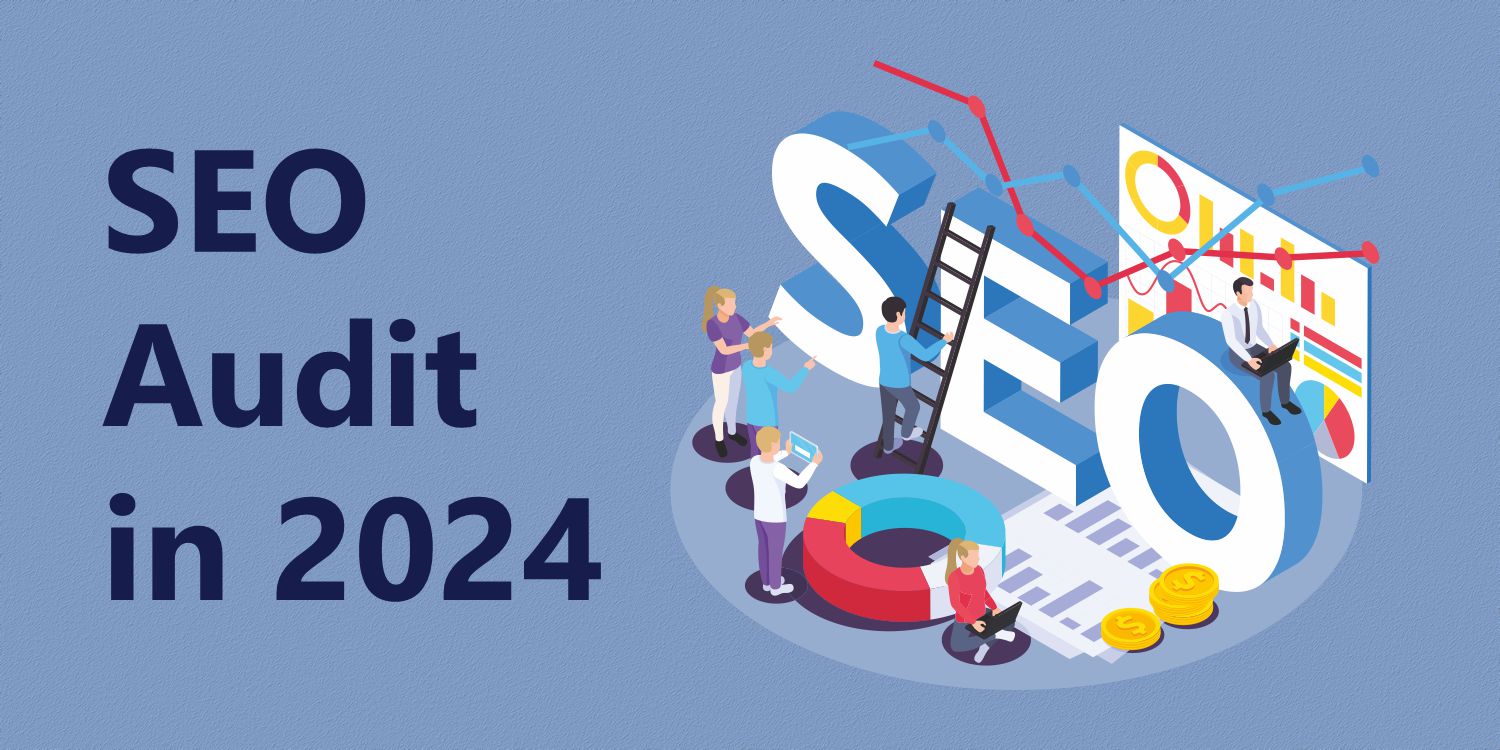
In this blog, you will learn what SEO is, how to do SEO, the importance of SEO, different types of SEO, and how to measure SEO activities.
However, before we start, I want to assure you something. So many contents on SEO resources make SEO multifaceted and complicated. They fright readers with technical jargon, complex components and hardly ever describe anything beyond theoretical concepts.
I reassure you; that this SEO guide for beginners isn’t like that and will offer you diverse types of SEO techniques.
I’m going to break down SEO into its most fundamental parts and showcase to you how to leverage all its components to build a successful SEO strategy. And to remain up-to-date on SEO strategy and the newest trends, check out Digicobweb’s Step by Step Guide to Perform Complete SEO.
Keep on reading to comprehend Search Engine Optimization (SEO) and how the significance of SEO can benefit you most.
Introduction to SEO
What is SEO? SEO stands and means Search Engine Optimization. SEO is the practice of positioning your website to rank high on a search engine results page (SERP) so that you better obtain more online traffic.
The objective of an SEO strategy is to increase an organization’s online visibility in organic search outcomes. As many as 14.6 percent of leads generated through organic SEO are converted into sales opportunities.
As a result, these SEO efforts steer more visitors to the organization’s website, boosting their chances for more inquiries which leads to more clients, more profits, and the addition of sales revenue.
When asked to clarify and describe what is SEO? I call it a business strategy to ensure that when people Google your service offering or product category, they find and land on your website portal.
However, there are numerous approaches to enhance the SEO of your website pages. Search engines look for essentials together with meta titles, meta descriptions, keywords, image tags, internal link structure, and backlinks to rank your web pages.
Search engines even look at the overall website structure and design elements, online visitor behavior, and vital off-site aspects to comprehend how superiorly ranked your website should be in their SERPs.
With all of these influences and introduction to search engine optimization (SEO) taken into account, SEO principally steers two things – website rankings and company visibility.
What is the Real Importance of SEO?
The SEO strategy virtually assists you in placing a company brand throughout the complete purchase journey. In turn, SEO can make sure that your marketing tactics match the new purchase behavior. Also, search engines are the initial point for 68 percent of all online experiences.
For instance, Statista found that around 60 percent of individuals search for a company online prior to making a buying decision. What is additional, this procedure has never been more complex.
But how do people leverage search engines during this procedure?
Initially, in the procedure, they utilize Google to find content material about their issues. Some of them even inquire about probable solutions.
Then, they assess accessible options based on online feedback, reviews, or social media presence prior to inquiring with a service provider. However, all this happens after they leverage all content sources.
And so, the only opportunity for clients to notice and comprehend a service provider or a company is by showing up in their searched outcomes, and there lies the importance of search engine optimization (SEO).
Relation Between Google and your Content
Search engines intend to offer users the most valuable answers or content, and SEO for google depends on it.
Every time you leverage Google SEO, their algorithms select pages that are the most related to your questions. And then rank them, primarily showcasing the most convincing ones first.
To provide the correct information and data to users, search engines check two aspects:
o Relevancy amid the search query and the page content. Search engines analyze the same by multiple influences such as keywords and explored topics.
o Authority can be quantified by a site’s popularity online. Google considers that the more popular a website page is, the more valued its content is to searchers. And to evaluate all these insights, they leverage search algorithms.
Search algorithms are multifaceted equations, and search engines keep them secret.
When comprehending applicability and authority, succeeding in the E-E-A-T framework can assist enormously.
E-E-A-T in search engine optimisation (SEO) stands for “Experience”,“expertise,” authoritativeness,” and “trustworthiness.” These three aspects can enhance your SEO content which can bring positive results and are important ranking factors.
So, adding more valuable content, improving image filenames, or cultivating internal links can positively impact your online rankings and overall search visibility as each of those tasks enhances a ranking factor.
Types of SEO
To organically optimize a website, you must enhance ranking factors in three parts, technical setup, website content, and links (internal & external). Around 53 percent of all trackable website traffic comes directly from organic search. On the other side, SEO can be categorized as local, on mobile, and for eCommerce.
Let us discover these areas one by one and better learn How to optimize each Element in SEO & Create an Audit Report.
a. Technical SEO
Technical SEO refers to website and server optimizations that facilitate better crawling and indexing your site by search engines and enhance organic rankings.
Here is a checklist of significant steps you can take to enable technical SEO. Working on these guidelines can ensure that your site’s security and structure meet the search engine algorithms’ criteria and bring results accordingly.
- Utilize Secure Sockets Layer (SSL)
SSL is a security technology that generates an encrypted link between a browser and a web server. You can find a website utilizing SSL; the site URL initiates with ‘https://’ instead of ‘http://.’
The search giant Google announced in 2014 that it wanted to see HTTPS everywhere and that safe HTTPS sites would get priority compared to non-secure ones.
You can install an SSL certificate on your site, though most website builders now comprise SSL by default for better convenience.
- Opt for Mobile-friendly Website
A ‘responsive’ site design adapts itself automatedly so that it can be better navigated and explored comfortably on any device.
Google’s algorithms consider a mobile-friendly or responsive site an essential ranking signal. A responsive website is even more significant as Google introduced its ‘mobile first’ indexing procedure.
Your website should therefore be entirely responsive so that it gets showcased the best way possible on mobile devices, tablets, and desktops.
- Boost the Speed of your Website
Search engines prefer website portals that load swiftly, and page speed is a ranking factor. There are multiple approaches you can increase the speed of your website:
o Leverage precise hosting and quick DNS (‘domain name system’) provider
o Reduce ‘HTTP requests’ and smartly use a CSS stylesheet
o Make image files as small as probable
o You should compress your website pages
o Reduce your website’s code by getting rid of excessive spaces, line breaks, or indentations in your JavaScript, HTML, and CSS
- Resolve Duplicate Content Challenges
Duplicate content confuses both search engines and users. These contents are used to manipulate search rankings and to increase traffic. Google and Bing suggest web admins resolve duplicate content issues they spot.
You can fix duplicate content challenges by:
o Avoiding your CMS publishing numerous versions of a post or page
o Leveraging the canonical link component to let search engines easily spot the ‘main’ version of your content.
- Generate an XML Sitemap
A precise XML sitemap is a file that assists search engines in comprehending your site while crawling it. It also comprises helpful insights about every web page, together with –
o When a web page was last altered
o What significance does it has on your website
o How regularly is it reorganized
- Enablement of AMP
AMP is a Google-supported project that increases content delivery on mobile devices by leveraging specific code called AMP HTML.
As they load quickly, AMP versions of pages are far more likely to be read and shared by your user base, boosting dwell time and the number of backlinks highlighting your content.
- Adding and Using Structured Data Markup
Structured data markup is code that you add to your site to assist search engines in easily comprehending and understanding the content on it. This data set can assist search engines index your website more efficiently and offer related results.
- Use Google Search Console and Bing Webmaster Tools
These free tools enable you to submit your site to their search engines for indexing. When you launch your site, you should submit its XML sitemap to both these tools so that they can crawl your new website and initiate to showcase outcomes from it directly in search results.
b. On-Page SEO
On-page optimization, also known as on-page SEO, make sure that search engines
- Comprehend a web page’s topic and connected keywords
- Can match it to applicable searches.
Approximately 8 percent of organic searches are expressed as a question. Here is the complete list of the most significant on-page SEO actions to take to enable search rankings.
- Keyword Optimization
It would assist if you made sure that Google understands and comprehends what keywords you want a website page to rank. To attain that, ensure you comprise at least the essential keywords in the following:
o Page title: Position it as near to the initiation of the title. Google places more value on words at the commencement of the title.
o URL: The page’s web address should comprise the keyword.
o H1 tag: This tag showcases the title of the page in most website CMSs (Content Management Systems). The foremost 100 words of content having the keywords will assure Google that this is the page’s topic.
o Meta title and meta description: Search engines leverage these two code components to showcase their listings. They showcase the meta title as the search listing’s title, and the meta description enables one to understand the web page’s topic with relevant keywords.
o Image details and ALT tags: Search engines view graphics on a web page merely with their file names. So, ensure that images comprise a relevant keyword in the file name.
- Non-Keyword Optimization
The non-keyword On-page SEO assists in confirming a web page’s credibility and authority with the below factors:
o External links: Linking to other applicable pages on the topic assists Google in comprehending the page topic one step further with a better user experience. It marks your content as a valued resource.
o Internal links: Those links assist you in improving rankings by allowing search engines to spot and crawl other pages on the website, and they showcase semantic relations amid diverse pages, assisting in comprehending its significance to the search query well.
o Multimedia: The multimedia components such as videos, diagrams, images, and audio can indicate a web page’s quality. It keeps visitors on a website page for longer and signals that they spot the content valued and worthy.
c. Off-Page SEO
Links, even known as backlinks, are orientations to your content on other sites. Every time another website portals points and directs their online visitors to your content, you receive a backlink to your website.
- Backlinks Quality Factors
Most top ranking website pages get ‘followed’ backlinks at a quick speed of +5 percent to 14.5 percent every month. Here are backlink quality factors to enable SEO for beginners.
o The linked site popularity: Any helpful link from a domain that search engines reflect an enhanced authority will indeed have higher quality. The links from sites that have good quality links directed to them will produce healthier outcomes.
o Topic significance: Backlinks from domains on a subject similar to yours will convey enhanced authority than those from haphazard sites.
o Reliable domains: Just like with fame/popularity, search engines even consider a site’s reliability. Links from more reliable websites will always influence rankings healthier.
Here are some of the tactics to create backlinks:
o Organic links: These backlinks come from sites that orient and refer to your content on their own.
o Outreach: Here, you connect with other sites for links. You could craft content and email them to suggest to them about it. In return, they would reference it, and you can land them on your website pages.
o Guest posting: Guest posts are SEO blogs that you publish on 3rd party sites. In return, those publishing companies allow placing links to your website in the content or author bio.
o Profile links: Many sites provide an opportunity to generate a link. Some of these sites are worth pursuing. Online profiles help you here, and you can list your site.
d. Local SEO
If you operate a local business, Google allows you to position it in front of likely clients in your location precisely. For local queries, around 42 percent of searchers click on the outcomes interior of the Google Maps Pack.
Local search results look somewhat diverse than global:
o They offer the impression only for searches with a local intent (for an instant, “hotel near me” or when an individual mentions a specific location in the search query.)
o They offer specific local information to searchers that they don’t require to go anywhere else to search further.
o Local searches mostly occur on mobile devices.
Local search outcomes cover a list of businesses in the nearby location, a map to track the areas, and added details about every business comprising:
o Business name, details, and images
o Address and opening hours
o Star reviews and feedback
o Company’s contact number
o Website link
e. Mobile SEO
Mobile vs. desktop usage statistics discloses that 50 percent of web traffic in 2022 came from mobile devices. So, if you want to optimize and enable your website for mobile SEO, here are recommendations to get you in progress that can assist in capitalizing on your potential on the mobile web.
- Include mobile-formatted content
The websites that are well formatted for mobile devices receive special treatment for searchers leveraging those targeted devices.
Updating a mobile-specific version of your website makes it simpler for your visitors and inspires Google to position you for topmost billing, as it is the best outcome for searchers.
- Concentrate on mobile keywords
Mobile searchers look for diverse keywords compared to desktop searchers. So, when looking for keyword ideas leveraging Google’s Keyword Tool, go to the “Advanced Options” link, and set it to showcase statistics for “All Mobile Devices.” This step will offer you a good idea of keywords to target mobile audiences.
- Generate a mobile sitemap
You must follow a comprehensive Google guide on how to create and leverage a mobile sitemap.
However, it is significant to utilize the precise formatting and take care of content applicability, as doing it wrongly can result in your links vanishing from the search engine rather than showcasing in it.
- Sidestep Flash and Large Images
You should avoid things that would limit your targeted audience on the mobile web, comprising large-sized images and flash.
Websites with such content get a lower response in mobile searches as many mobile devices can’t access them.
You must build your mobile website in HTML5, keeping the images to a rational size, and shorten ALT tags to make sure they showcase precisely.
f. Ecommerce SEO
Ecommerce SEO allows your online store to be visible in search outcomes, leading to increased organic traffic. When individuals can find your online store and learn about what you provide, they are more prospective to purchase a product or service.
Ecommerce SEO is essential as 44% of individuals initiate their online shopping journey with a Google search.
Ecommerce SEO strategy includes precise Keyword Research, On-page SEO, Technical SEO, Backlinks Creation, Mobile Optimization, and Ecommerce SEO Audit.
It would assist if you focused on optimizing your eCommerce portal by creating higher quality and keyword-rich product descriptions and blogs.
How does SEO Work for Business?
SEO for business works by enhancing a website’s content, steering keyword research, and producing inbound links to upsurge that content’s ranking and the site’s visibility.
While you can commonly see outcomes take effect on the Search Engine Results Page (SERP) once the website pages have been explicitly crawled and indexed by search engines, SEO impacts can take months to materialize completely.
- Rankings
Search engines comprehend where to place a web page in the SERP and offer rankings. Rankings jump at position zero through the closing number of search engine outcomes for the specific query, and a website page can rank for a single position at a time.
With time, a website page’s ranking might alter due to age, direct competition in the SERP, or algorithm alterations by the search engine.
- Visibility
This term designates how projecting a specific domain is in the search engine outcomes. Higher search visibility occurs when a domain is visible for numerous and appropriate search queries, whereas with lower search visibility, the reverse is factual.
Both are accountable for enabling significant SEO objectives – online traffic and overall domain authority.
How to Measure and Track SEO Performance?
Technical setup, content, and backlinks are crucial to getting a site into the search outcomes. Tracking SEO performance and your applied efforts further enhance your business strategy. So, how should you monitor or track SEO progress?
To measure SEO performance, companies use SEO performance metrics and follow SEO KPIs (key performance indicators) such as:
- Organic traffic
- Keyword rankings
- Conversions from online traffic
- Average time on web pages
- The bounce rates
- Growth of backlinks (comprising new and lost links)
Best SEO Resources
This SEO Guide for Beginners is merely an initiation point for exploring SEO. However, there is much more to discover, explore and learn.
Here are online training resources if you want to take on SEO as a skill set:
You can also prefer to get SEO acquaintance from industry specialists and their articles. Here are some worth exploring:
Conclusion
With the SEO introduction in this blog, we can summarize that without actively aligning its content with search outcomes, no company can survive long.
By boosting your search visibility, you can bring more online visitors and, in turn, generate qualified leads and increase sales opportunities. And that is well worth the time invested in becoming a specialist in SEO or hiring an SEO services provider company.
If you are seriously looking for a leading SEO service provider company to make a substantial online presence of your company business on the web with top search engine rankings, Digicobweb can assist you.
We are here to deliver ethical SEO practices to businesses who are really looking forward to making over their current and futuristic digital image.




Hi Amit,
This post is a goldmine for beginners in SEO.
Along with the entire post, I especially loved the measuring and tracking SEO part, I was searching for SEO KPIs and got my answer from here.
Thanks for sharing 🙂